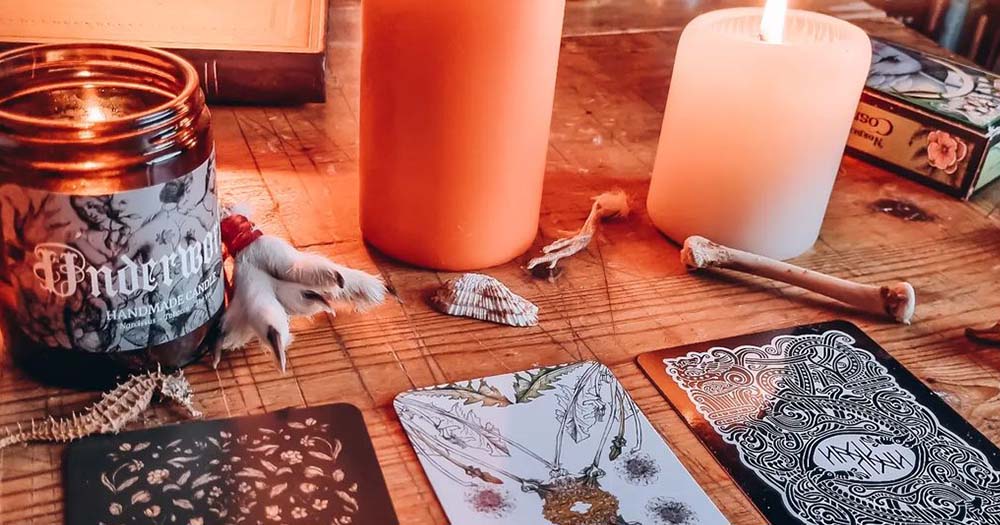If you’ve ever been attracted to the hum of a sound bowl, the intoxicating aroma of an incense candle, the comfort of a glimmering crystal, or the mystery of a tarot card reading, you may be among a growing number of queer people who are curious about witchcraft.
Even if you don’t have close friends who are witches, a quick scan through some LGBTQ+ social media profiles will lead you to discover self-identifiers like “queer femme witch” and “magick practising” in bios representing a range of queer witches practising their crafts.
At its core, witchcraft is rooted in healing, rebellion, and rituals: all things that are intertwined with LGBTQ+ culture. If you’re interested in learning more before jumping in headfirst, read on to see why so many become enchanted by the witchy world.
Community
Queer witches typically practice alongside other witches in a coven. Many LGBTQ+ people grew up in church or social communities that we no longer have an attachment to, so it’s natural to seek this kind of connection in other places.
One of the most attractive things about witchcraft is that it predates Christianity and other religions that hold so much power in our modern society. Finding a coven of like-minded witches feels particularly comforting after periods of isolation.
Healing Rituals
Witchcraft has been described as a practical approach to spirituality, and it includes a myriad of sacred, healing rituals. Many witches identify as healers, offering their powers to heal themselves and others.
Practising magick (the ‘k’ is used to distinguish ritual spiritual magick from stage performance magic) involves following a series of sacred cycles and rituals, and after years of being told that otherness is wrong, rituals are a powerful way to return to ourselves, and queer witches have been called lighthouses guiding queer people to embrace their authentic selves.
Rebellion
Society’s fear of witches is connected to cisgender patriarchal ideas about who should have power, and many LGBTQ+ witches feel a connection to witchcraft because it dissolves socially-constructed ideas about gender roles. Breaking away from societal norms and assuming a queer identity is an incredibly freeing act of rebellion in itself, and contemporary witchcraft is often connected to liberation and social justice work.
The word witch has long been reclaimed and repurposed as a source of power. The 1960s’ W.I.T.C.H. (Women’s International Terrorist Conspiracy from Hell) movement was created to demolish patriarchal structures, and this group continues to fight for LGBTQ+ rights today.
Intuition
For many LGBTQ+ people who identify as witches, practising magick means tapping into their intuitive knowing to access their internal power. One of the most pervasive themes is that there is not one, correct way to be a witch, it’s a highly individual experience that anyone can practice.
Many queer people who practice witchcraft feel connected to their queer ancestors, and some people believe that these connections to witchcraft are passed down through generations. While some people may have a more natural talent or inclination toward the practice, anyone can be a witch if they choose to practice.
© 2023 GCN (Gay Community News). All rights reserved.
Support GCN
GCN is a free, vital resource for Ireland’s LGBTQ+ community since 1988.
GCN is a trading name of National LGBT Federation CLG, a registered charity - Charity Number: 20034580.
GCN relies on the generous support of the community and allies to sustain the crucial work that we do. Producing GCN is costly, and, in an industry which has been hugely impacted by rising costs, we need your support to help sustain and grow this vital resource.
Supporting GCN for as little as €1.99 per month will help us continue our work as Ireland’s free, independent LGBTQ+ media.

comments. Please sign in to comment.